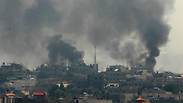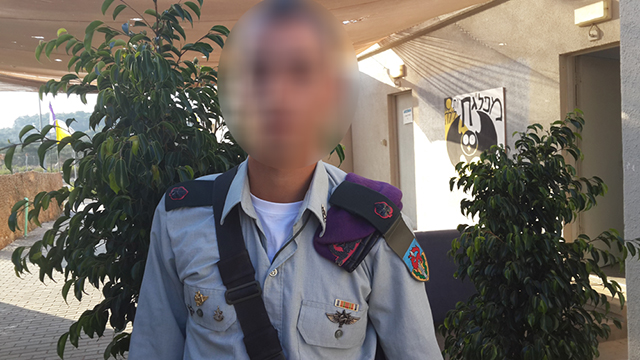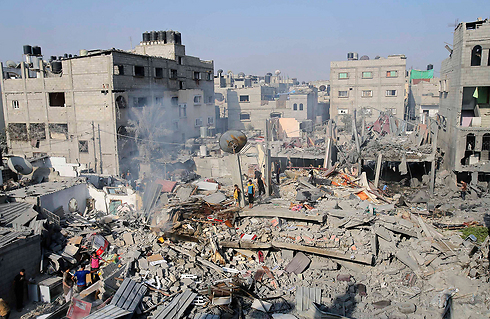
AG: Hannibal Directive forbids killing kidnapped soldier
Israel's chief legal counsel says shelling undertaken with intent to eliminate captive – as in case of Lt. Goldin – prohibited even under rare operational order.
The chief legal counsel's statement runs counter to those of senior Givati commanders, who said they preferred the soldier be killed in action and not kidnapped alive. An IDF major, who commands an anti-tank company, said in September – at the end of Operation Protective Edge – that "in these events, you prefer a dead soldier and not a soldier in the hands of Hamas: Shalit 2."
The commander emphasized that, in his opinion, "You prefer a corpse and not a captive soldier. We have clarified to the forces many times of the kidnapping threat and the intent to disrupt such an operation – by hitting the enemy even at the cost of hitting your friend."
In a response to a petition by the Association for Civil Rights in Israel, titled "The Hannibal Directive and its implementation in densely populated areas," the attorney general wrote that the operational order regarding the thwarting of a soldier or Israeli citizen's kidnapping is a classified command and thus its provisions cannot be revealed. "Nonetheless, it reflects a proper balance between the different considerations which touch on this topic."
He explained: "A military operation to thwart a kidnapping after it occurred almost always carries with it a risk to the life of the captive, and yet there is no law in Israel or the international courts that prohibits taking actions to prevent a kidnapping, even in situations where the operation may endanger the life of the kidnapped."
Weinstein emphasized: "The operational order forbids undertaking a shelling with the intent of killing the kidnapped."
In all matters relating to the events that occurred following the kidnapping of Lt. Hadar Goldin in the suburbs of Rafah during Operation Protective Edge, Weinstein wrote: "Questions were transferred to the Chief Military Advocate General for preliminary investigation by the fact-checking mechanism of the general staff. This completed the incident inquiry and the findings were transferred to the chief military counsel for a decision on the case."
He added: "A decision has yet to be taken."
About a month after the end of the summer operation, Givati battalion commander Lt. Col. Eli Gino recounted the incident. "I sent the other two companies to take over nearby areas in order to isolate the scene."
"We officially announced the implementation of the Hannibal Directive on the radios about 20 minutes after the incident. We sent fighter jets to bomb places we suspected the shafts were. We knew it meant it'll be less likely we found Hadar alive, but this was the best way to handle this. In a situation like that you need to pick the lesser of evils. The bottom line is, they don't have him and the cell was probably eliminated," he went on to say.
Last week, Defense Minister Moshe Ya'alon rejected calls to allow the IDF's military police to investigate the events surrounding 'Black Friday' – an August 1st incident in which Lt. Hadar Goldin was killed and captured by the Hamas in Rafah, leading the IDF to implement its controversial Hannibal Protocol.













